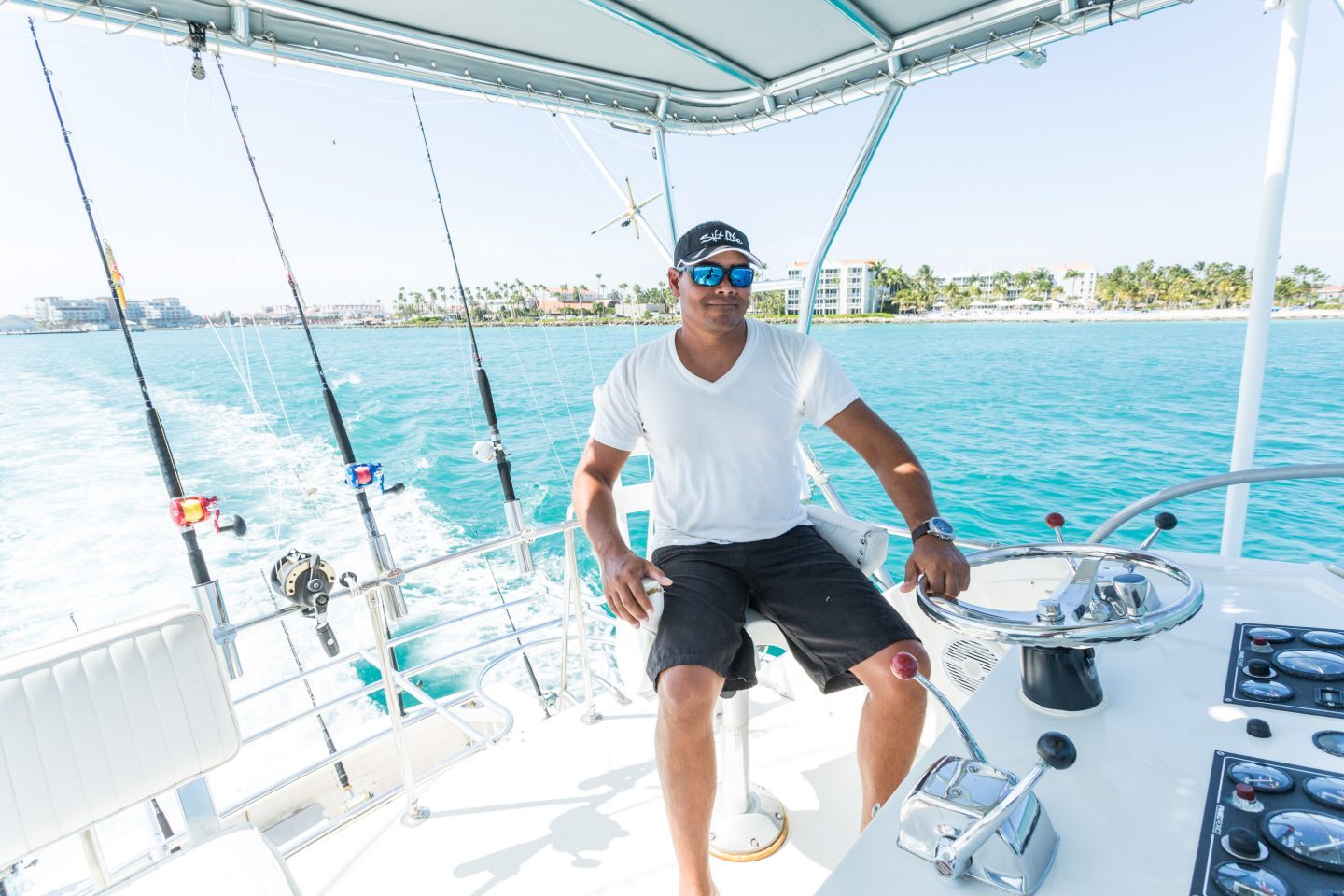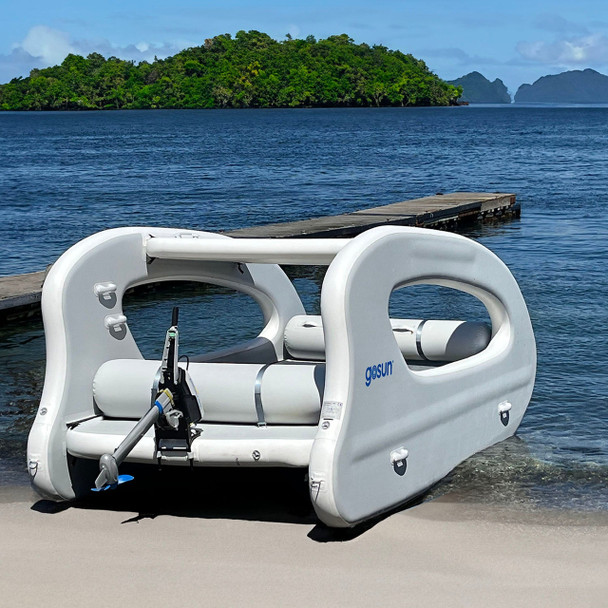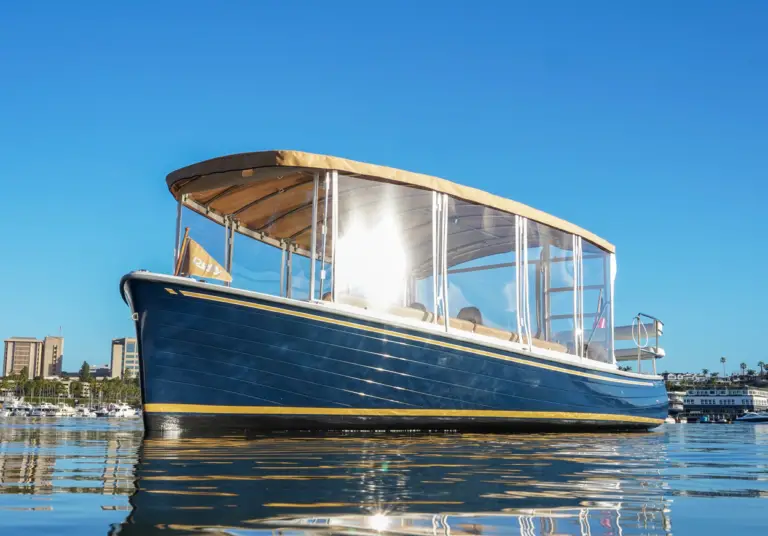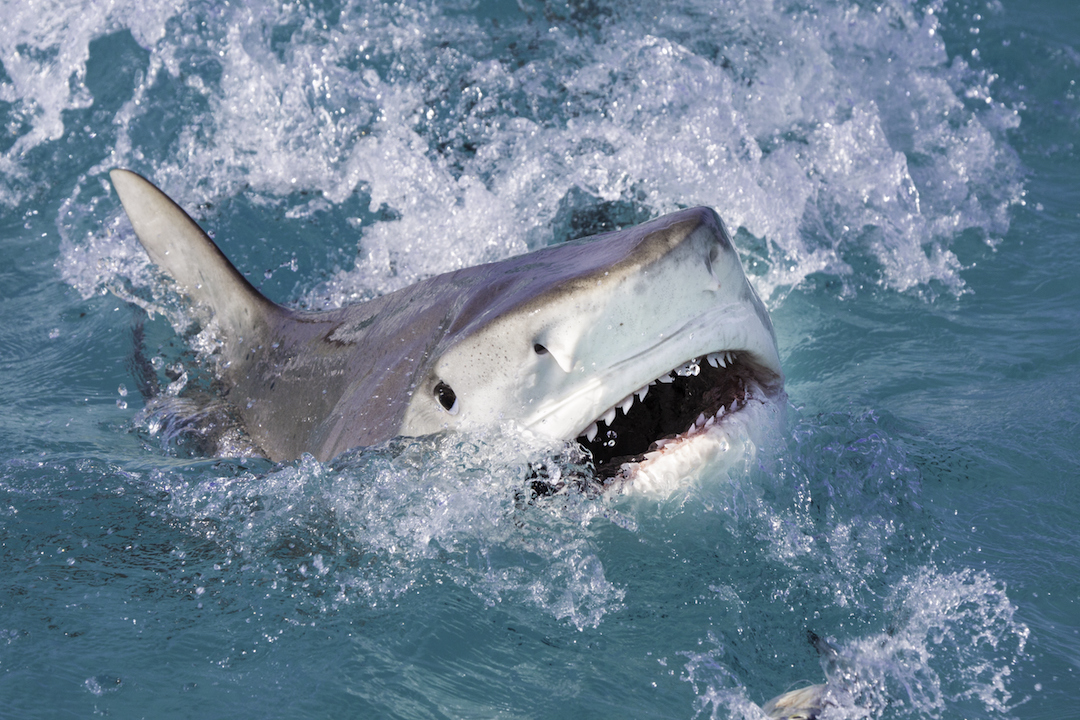Fishing Boats for Sale: Expert Guide to Top Choices
Fishing boats are an essential asset to enthusiasts and professionals alike. They offer a wide range of advantages, including easy navigation through diverse waters and making your angling experience more enjoyable.
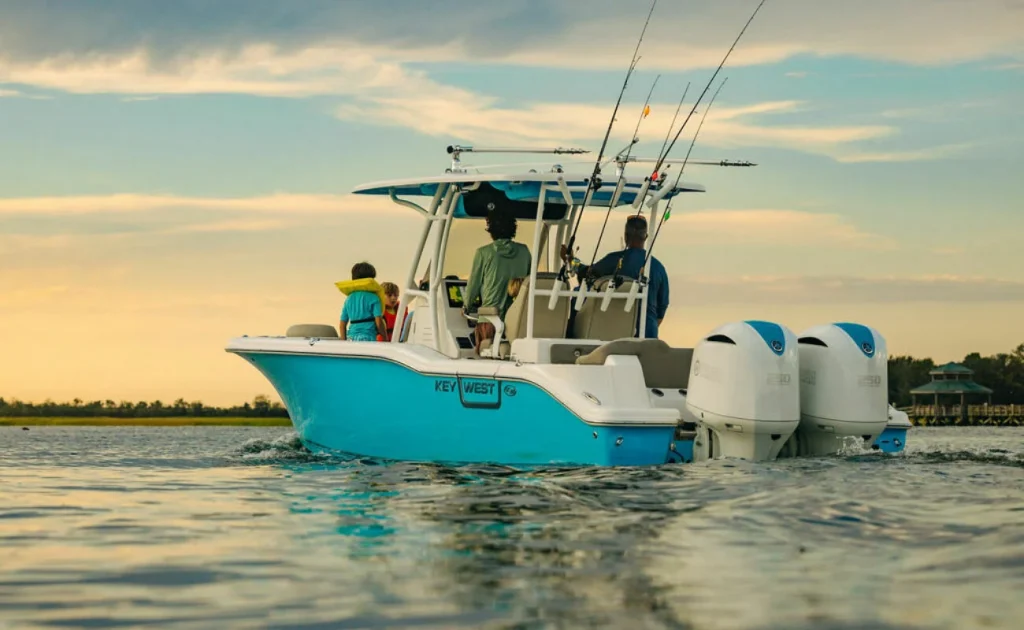
With countless models, features, and price points available, finding the perfect fishing boat can be a challenging journey. This article will introduce you to the world of fishing boats for sale and what to consider when making your purchase.
From small and simple boats like johnboats to high-powered, technologically advanced sportfishing yachts, the options can seem overwhelming.
There are several factors to consider, such as the type of fishing you plan on doing, the waters you'll be navigating, and your overall budget. These criteria will help you discern the best choice for your needs and interests.
Key Takeaways
- There's a diverse selection of fishing boats available for various needs and budgets
- It's crucial to consider factors such as the type of fishing, waters, and budget while making a decision
- Exploring the market and evaluating features, boat conditions, and manufacturers can help in finding the right fit
Types of Fishing Boats
Fishing boats come in a variety of shapes and sizes, each designed to suit specific fishing environments and techniques. This section will briefly outline some common types of fishing boats and their features.
Freshwater Fishing Boats
Freshwater fishing boats are typically smaller and lighter than their saltwater counterparts. These boats are designed for fishing in ponds, lakes, and rivers.
Some common freshwater fishing boats include:
- Jon Boats: Simple, flat-bottomed boats made from aluminum that usually have bench seating for 2-3 anglers and storage space for gear. Jon boats are similar to bass boats and flats boats.
- Bass Boats: Designed specifically for bass fishing, these boats typically have a fast, low-profile design with built-in rod holders and a trolling motor to help anglers navigate shallow waters.
- Flats Boats: Shallow-water boats commonly used for fly fishing or light-tackle fishing, with a low freeboard and minimal draft to navigate skinny water.
Saltwater Fishing Boats
Saltwater fishing boats are built to handle the challenging conditions of ocean fishing. Common varieties include:
- Center Consoles: These boats have a central steering console and are versatile enough to be used for various saltwater fishing techniques. They often have a large fishing deck, built-in rod holders, and a high freeboard for safety in rough waters.
Deep Vee and Modified Vee
- Deep Vee Boats: Featuring a sharp bow entry and a deep V-shaped hull, these boats offer a smooth ride and excellent handling in rough water. They're well-suited for fishing in deeper, choppier waters like the ocean or large freshwater lakes.
- Modified Vee Boats: These boats have a slightly shallower V-shaped hull that still offers a smooth ride and handling, but with less draft, making them suitable for both freshwater and saltwater fishing environments.
Pontoon Boats
Pontoon boats are characterized by their broad, flat decks mounted on two or more pontoons. They offer ample stability and space for multiple anglers.
While traditionally considered leisure boats, many modern pontoon designs include features like built-in fishing rod holders and livewells to accommodate anglers' needs.
Catamaran-style Boats
Catamaran-style boats have two parallel hulls that provide greater stability and a smoother ride in rough waters. These boats can be used for various types of fishing, including offshore and deep-sea fishing.
The space between the two hulls can be utilized for additional storage or seating, making them perfect for group fishing trips.
Key Features to Consider
Hull Types
There are several hull types to consider when looking for a fishing boat, such as flat bottom, V-shaped, and catamaran hulls. The choice largely depends on the water conditions and your intended use.
- Flat Bottom - Ideal for calm, shallow waters
- V-shaped - Suitable for rougher waters and provides a smoother ride
- Catamaran - Offers increased stability, making it great for offshore fishing
Length and Beam
The length and beam of a fishing boat also play important roles in its performance and usability.
Smaller boats (16-17 feet) with smaller outboards are great for small lakes, while larger boats (18-19 feet) with bigger outboards are better suited for big lakes. Wider beams offer more stability, but may sacrifice speed.
Propulsion Systems
Fishing boats can have different propulsion systems including inboard, outboard, and inboard/outboard engines.
- Inboard - Engine is located within the hull, providing better maneuverability but requiring more maintenance
- Outboard - Engine is attached to the transom, offering better fuel efficiency and easier access for maintenance
- Inboard/Outboard - A combination of both systems, balance between maneuverability and fuel efficiency
Motor Types
There are various motor types available to choose from depending on your preferences.
- Gasoline - Offers more power and is suitable for larger boats
- Diesel - Provides better fuel efficiency but comes at a higher initial cost
- Electric - Perfect for smaller boats, quieter, and eco-friendly
Fuel Systems
The fuel system is another key consideration.
Common options include built-in tanks or portable tanks. Built-in tanks are more convenient, while portable tanks can be easily replaced or filled, offering flexibility.
Passenger Capacity
Finally, consider the passenger capacity of the fishing boat.
Smaller boats may provide a more intimate experience, while larger boats can comfortably accommodate more people.
Boat Condition and Age
Newly Built Vessels
Purchasing a newly built vessel ensures that you're getting the latest designs, materials, and technology.
The boats available on the market include popular brands like Boston Whaler, Viking, and Scout.
These boats feature modern hull designs, fuel-efficient engines, and cutting-edge navigational equipment. With new boats, you have the option to customize certain aspects to suit your preferences.
Keep in mind that the prices for new sport fishing boats can vary.
Some of the more affordable boats can start around $12,999, while high-end boats can reach millions of dollars. It's important to carefully consider your budget before committing to a newly built vessel.
Used Boats
Used boats, on the other hand, offer a more economical option for those looking to purchase a sport fishing vessel.
These boats can still provide a great fishing experience, while often being considerably less expensive than their new counterparts.
Used saltwater fishing boats range in price, starting from $12,998 up to $1,599,959.
This broad price range enables buyers to find a boat that suits their budget. Keep in mind that the condition of a used boat can vary significantly, so it's essential to thoroughly inspect the vessel before purchasing.
Some important factors to consider include:
- Hull integrity: Ensure there are no major structural issues or signs of damage that could compromise the boat's performance.
- Engine condition: Check the hours on the engine and its maintenance history. This will give you an idea of its remaining lifespan and any potential issues.
- Electronics and equipment: Verify that all onboard systems are working properly and up-to-date.
Popular Boat Manufacturers
Boston Whaler
Boston Whaler is a well-known manufacturer producing unsinkable fishing and luxury boats ranging in size from 13 to 42 feet across 28 different models.
Known for their durability and versatility, these boats are a favorite among fishing enthusiasts and recreational boaters alike.
Tracker
Tracker is another popular boat manufacturer that specializes in both freshwater and saltwater fishing boats.
They are particularly known for their dedication to providing sturdy and reliable vessels at affordable prices.
Ranger
Ranger boats are best known for their bass fishing boats but also offer aluminum utility boats, saltwater skiffs, and pontoon boats. They are known for their design, which provides an ideal platform for anglers to cast and reel in their catch.
Lund
Lund is a popular manufacturer of aluminum fishing boats. With a variety of models available, Lund boats are designed to provide an excellent fishing experience for anglers of all experience levels. Lund is known for its toughness, quality construction, and wide range of models catering to different fishing styles.
Crestliner
Crestliner is another leading manufacturer of freshwater fishing boats, with the 1850 Fish Hawk being a popular choice among fishing enthusiasts. These boats boast sleek console designs, elevated casting platforms, and ample storage.
Grady-White
Grady-White is a premium boat manufacturer widely recognized for its high-quality center-console and walk-around fishing boats. With a reputation for exceptional design and performance, Grady-White is a top choice for those seeking a superior fishing experience.
Scout
Offering a blend of luxury and performance, Scout Boats is a high-end manufacturer of center console and dual console fishing boats. Known for their innovative and stylish design, Scout boats maximize space and provide a comfortable on-water experience.
Bertram
Famed for their classic design and powerful performance, Bertram yachts include convertible, express, and center console fishing boats. With an emphasis on quality and reliability, Bertram is a popular choice for those seeking a high-end fishing boat with a timeless appearance.
Boat Motors and Horsepower
Fishing boats often have different motor options, which greatly affect their horsepower and performance. In this section, we will discuss the two primary types of boat motors: inboard and outboard motors.
We will also look at the average motor size for fishing boats.
Inboard Motors
Inboard motors are built into the hull of the boat and run on either gasoline or diesel fuel. They provide a significant amount of power, which is useful for larger fishing boats.
Inboard engines can offer a smooth, quiet ride and are generally more fuel-efficient compared to outboard motors. Some popular inboard engines for fishing boats reach horsepower levels of up to 2,700.
- Gasoline Engines: Gasoline-powered inboard motors provide a great balance between performance and cost. They are usually lighter and produce less noise than diesel engines.
- Diesel Engines: Diesel inboard engines offer more torque and better fuel efficiency than gasoline counterparts. They are, however, often more expensive and heavier.
Outboard Motors
Outboard motors, on the other hand, are mounted externally on the boat and can run on gasoline, diesel, or even electricity. They come in various horsepower capacities, from as low as 60 to a high of 5,270, providing versatility for different boat sizes and purposes.
- 2-Stroke (2S) Engines: 2-stroke outboard engines are lightweight and generally cheaper but produce more emissions.
- 4-Stroke (4S) Engines: 4-stroke outboard engines tend to be heavier and more expensive, but they are quieter and more environmentally friendly.
- Electric Engines: Electric outboard motors provide a near-silent, emission-free option for small to medium-sized boats.
Average Motor Size
On average, the typical motor size for a fishing boat falls around 737 horsepower.
It is essential to consider the specific needs of a fishing trip or activity when choosing the most suitable motor size.
Factors such as the size and weight of the boat, the number of passengers on board, and the desired speed should be taken into account when selecting the right motor for your fishing boat.
Marketplace and Dealers
Boat Trader
Boat Trader is the United States' largest marketplace for buying and selling boats. It offers a wide selection of new and used boats, outboard motors, engines, and trailers. They are also a valuable resource for boating guides and tips.
Boat Trader offers various boat types from fishing boats, pontoons, and cruisers to yachts. Their extensive inventory covers many brands, price ranges, and locations, ensuring potential buyers can find the perfect boat for their needs.
YachtWorld
YachtWorld is a global online marketplace focusing on luxury and larger boats, including motor yachts, sailing yachts, and catamarans. They mainly cater to the United States, United Kingdom, and Canada.
YachtWorld's platform connects buyers and sellers through its extensive network of yacht brokers, providing expert guidance throughout the purchase process.
With a vast inventory and detailed boat listings, YachtWorld is an essential resource for potential buyers searching for high-quality, luxury boats.
Boat Dealers
There are many boat dealers across the United States, United Kingdom, and Canada that offer a great selection of new and used boats for sale.
These dealers often specialize in specific boat brands, types, or regions, providing expert knowledge and tailored customer service.
Some notable boat dealers include:
- MarineMax: A leading boat retailer in the United States with over 60 locations, offering premium brands such as Sea Ray, Boston Whaler, and Azimut Yachts.
- Sundance Marine: A reputable dealer in Canada specializing in high-quality fishing boats, pontoons, and day cruiser boats.
- Ancasta International Boat Sales: A well-established boat dealer in the United Kingdom, offering a wide range of sailing yachts and motorboats.
When searching for a new or used fishing boat, potential buyers should consider exploring both online marketplaces and local boat dealers to find the best deal and support throughout the buying process.
Buying Guide
Assessing Your Needs
Before you start searching for fishing boats for sale, it's essential to assess your needs and preferences.
Consider the type of fishing you will be doing, the typical fishing locations, and features that matter the most to you. Here are some key factors to think about:
- Type of fishing: Will you be fishing in freshwater or saltwater? Different types of boats are designed for different types of fishing environments.
- Fishing locations: Consider the depth and size of the water bodies where you will be fishing. This will help determine the appropriate size and type of boat.
- Features and layout: Think about your preferred fishing style and the features you'll need on your boat. For example, storage options, live wells, and rod holders.
Budget Considerations
Fishing boats are available at various price points, so it's important to set a budget before you begin your search.
Keep in mind that besides the initial purchase price, you should also consider costs for insurance, maintenance, and storage.
When setting a budget, consider the following:
- Initial purchase price
- Ongoing costs (insurance, fuel, maintenance, storage)
- Financing options (if necessary)
It's important to balance your budget with the essential features you need for your type of fishing. Sometimes, it may be worth investing a bit more for a boat that meets all your requirements.
Searching for the Right Boat
Once you have assessed your needs and established a budget, you can begin searching for fishing boats for sale.
Many websites offer boat listings, such as Boat Trader and Smart Marine Guide. These sites provide detailed information on boat features and prices, allowing you to compare different options.
When evaluating boats, pay close attention to the following features:
| Feature | Description |
|---|---|
| Hull design | Affects the boat's stability, maneuverability, and performance. |
| Construction materials | Can impact durability and maintenance requirements. |
| Engine power | Important for boat speed and performance. |
| Deck layout | Affects how you move around and use the boat while fishing. |
Remember to thoroughly inspect any boat you are considering, and if possible, take it for a test ride to ensure it meets your needs and expectations.
Trailering and Transportation
Trailerable Vessels
When looking for a fishing boat that can be easily transported on a trailer, it's important to consider the overall dimensions and weight of the boat. A properly fitted trailer and towing vehicle are crucial for safe transportation.
Let's discuss some factors that play a role in trailering fishing boats.
A trailerable vessel typically has a hull length less than 25 feet and a beam width less than 8.5 feet, allowing it to be transported on public roads without specialized permits or wide-load escorts.
Some examples of popular trailerable fishing boats include:
- Center Console Boats
- Jon Boats
- Walkaround Boats
- Aluminum Fishing Boats
Selecting the appropriate trailer for your boat is important, as it should match the boat's weight, length, and be able to support the hull shape.
Some options you may find suitable for a variety of trailerable boats are available at websites such as SmartMarineGuide.com or boats.com.
When it comes to towing capacity, make sure that your vehicle can handle the combined weight of the boat, motor, trailer, and additional equipment.
You can find this information in your vehicle’s owner's manual or by referring to the manufacturer's specifications.
For easier loading and unloading from the trailer, consider investing in powerful winches and high-quality rollers. These will not only simplify the process but also minimize the potential for damage while putting your boat on and off the water.
Destination and Uses
Recreational Boating Activities
Fishing boats serve various purposes, with a primary focus on recreational boating activities. They are designed to accommodate both leisurely pursuits and more action-packed adventures on the water.
Some common activities include waterskiing, wakeboarding, diving, and simply enjoying a day spent on the water with friends and family.
Saltwater Fishing Boats
Saltwater fishing boats are built to handle the harsh conditions of ocean excursions, such as larger waves and stronger currents.
These vessels typically have powerful engines, sturdy hulls, and ample space for fishing gear. They also tend to include features such as live bait wells, built-in coolers, and fish-finding technology to improve the overall saltwater fishing experience.
Popular models can be found at YachtWorld and YATCO.
Freshwater Fishing Boats
Freshwater fishing boats are designed for enjoying fishing in lakes and rivers.
These boats have various options, such as a smaller motor for maneuverability in tight spaces, shallow drafts, and ample storage for tackle and gear.
Freshwater anglers can choose from a wide range of boat types, including bass boats, center console boats, and more.
Boat Trader and BoatCrazy are great places to find fishing boats for freshwater destinations.
Crew and Passengers
The size and layout of a fishing boat can significantly impact the number of passengers it can accommodate.
While some fishing boats cater to small groups with limited seating, others can comfortably hold up to 10 passengers or more, making them ideal for larger gatherings or guided fishing trips.
It is crucial to consider the potential crew and passenger requirements when selecting the right fishing boat for your needs.
Both new and used fishing boats for sale are available on United Yacht and other online platforms.
Ownership and Maintenance
Ongoing Costs
When owning a fishing boat, it's essential to consider the ongoing costs involved.
These costs may include insurance, registration, and moorage fees.
Fuel and storage, along with other necessary expenses, are important to account for to upkeep a fishing boat.
On average, expenses for owning a boat are estimated to run between 15% and 25% of the boat's overall value.
The larger and more complex a vessel is, the higher the percentage of ongoing costs.
Recreational boating activities, such as fishing or simply cruising, demand different levels of expenditure based on the kind of vessel used.
One should select a boat based on their preferred activities and the associated expenses, ensuring that the boat fits one's budget.
Boat Maintenance
Maintaining a fishing boat in optimal condition is crucial for both safety and performance.
Regular boat maintenance comprises tasks such as:
- Cleaning: Keep the boat clean to prevent algae growth and other marine buildup that can affect the vessel's performance.
- Engine maintenance: Regularly checking and replacing engine oil, filters, and spark plugs will increase the engine's lifespan and improve efficiency.
- Electrical system checks: Inspect wiring, batteries, and other components to ensure they are functioning correctly and prevent corrosion or damage.
- Hull and deck inspections: Look for cracks, wear, and damage in the hull and deck area, repairing any issues promptly. This also includes checking the integrity of the boat's paint and varnish.
- Safety equipment: Confirm that all safety equipment, such as life jackets, flotation devices, and fire extinguishers, are in good condition and readily available.
Frequently Asked Questions
What should I consider when purchasing a used fishing boat?
When purchasing a used fishing boat, you must consider several factors to ensure a smooth transaction.
These include the boat's maintenance history, title free of liens, registration documentation, proof of ownership, a bill of sale, and any surveys or inspection certificates.
It is also beneficial to evaluate the boat's size, type, and overall condition to ensure it meets your fishing needs and budget. source
How can I find fishing boats for sale by owner in my area?
To find fishing boats for sale by owner in your area, you can utilize various resources to search for private sellers.
These resources include online boat classifieds, local boating forums, social media groups, and word of mouth through friends and family who share an interest in fishing.
Additionally, some marinas and boat dealerships may offer listings for private sellers.
What are the benefits of buying a new fishing boat versus a used one?
Buying a new fishing boat offers advantages such as the latest technology and features, the possibility of a manufacturer's warranty, and a brand-new hull free of wear and tear.
However, purchasing a used fishing boat can provide cost savings, potential warranty transfer from the previous owner, and the opportunity to customize the boat based on your preferences and fishing needs. source
Are there any specific features I should look for in a small fishing boat?
In a small fishing boat, prioritize features such as a durable and stable hull design, ample storage, customizable rod holders, comfortable seating, and a fuel-efficient engine.
Additionally, consider the ease of transporting and launching the boat, as these factors can affect the overall fishing experience.
How do I assess the condition of a fishing boat before making a purchase?
To assess the condition of a fishing boat, ask the seller for maintenance records and inspection certificates.
Carefully examine the hull for signs of damage, such as cracks, blisters, or signs of repairs.
Inspect the engine, electronics, and trailer, if included, and if possible, conduct a sea trial to evaluate the boat's performance on the water. source
What are the best practices for conducting a transaction for a boat on an online classifieds platform?
Best practices for conducting a transaction through an online classifieds platform include communicating with the seller to verify the boat's information and condition.
After that, you should meet in a safe, public location for inspections and sea trials, and arrange for a secure payment method.
Additionally, consider using a boat purchase agreement to formalize the transaction and protect both parties' interests.
Charlie is Editor-in-Chief of Sea Magazine

